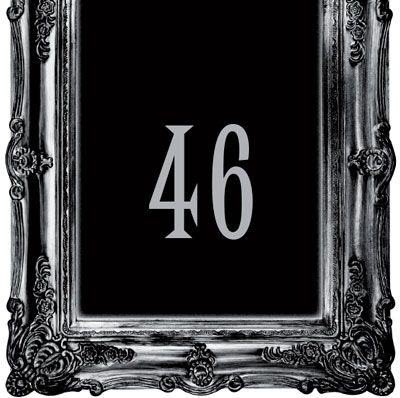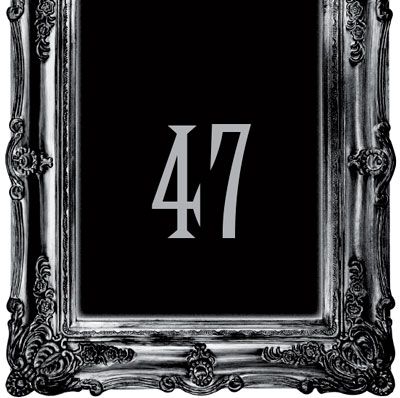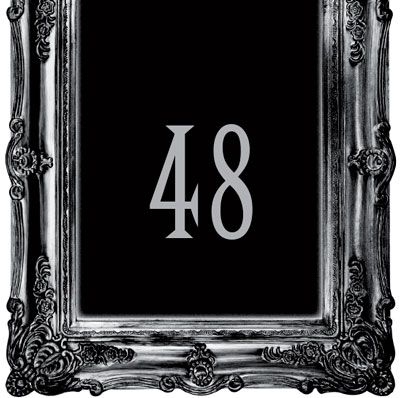Insatiable Appetites (22 page)

“She deserves it.”
Joan came back with the check and the agreement; Anna put the check into her purse and signed the agreement. “See you tomorrow,” she said.
“We’ll look forward to having you here,” Stone replied.
He helped her on with her coat and she left.
Stone went back to his office and locked the volumes of Eduardo’s journal in his safe again.

Bruce Willard got home at midday, having completed his cataloging of Elton Hills’s furniture, silver, and art. He left his bag in his apartment, then went down to his shop. His assistant, Pamela West, was at her desk in the little office.
“Everything quiet?”
“A customer in the back. He’s been in a couple of times while you were gone.”
“What’s he looking for?”
“He always says he’s just browsing.”
“I’ll have a word with him.” Bruce walked to the rear of the store and found a man closely inspecting a Georgian silver gravy boat. He was tall, slim, and bald; he turned to look at Bruce and showed a face with narrow eyes and no eyebrows.
“Good morning,” Bruce said, offering his hand. “I’m Bruce Willard. Can I help you with anything?”
The man shook it. “I’m Creed Harker,” he said with a small smile. “I’m just browsing, really.”
“Do you have a particular interest in Georgian silver?”
“I have a particular interest in beautiful things,” Harker said.
“Well, we have a shop full of those. Anything you see interest you?”
“I like the portrait hanging over there by the door,” he said. “It looks vaguely like a Sargent.”
“That’s because it
is
a Sargent,” Bruce said. “Or, at least, a number of people with knowledge of his work think it is. Of course, a number of people think it isn’t. It’s not signed, and it appears to be an early work, before his style was fully formed. That’s why it’s a bargain.”
is
a Sargent,” Bruce said. “Or, at least, a number of people with knowledge of his work think it is. Of course, a number of people think it isn’t. It’s not signed, and it appears to be an early work, before his style was fully formed. That’s why it’s a bargain.”
“How much of a bargain?”
“Six thousand dollars.”
“Not that much of a bargain.”
“If it’s a Sargent, it’s a screaming bargain.”
“What’s its provenance?”
“Unknown. I bought it in a mixed estate sale. There are times when you have to rely on your own eye.”
“You’re a friend of Evan Hills, aren’t you?”
“I was. Perhaps you haven’t heard that he died two weeks ago.”
“I believe I had heard that.”
“He was killed in New York by a coward in a car, who then fled the scene.”
Harker flushed slightly. “How tragic,” he said.
“More than you know. There’s a large-scale police investigation, though, and they’ve already found the car, a black SUV with a Virginia registration.”
“I see.”
“It was reported stolen, after the fact. What business are you in, Mr. Harker?”
“Private security.”
“Would that be Integral Security of McLean?”
“Oh, you know us?”
“I know that your company owned the SUV in question.”
“Yes, it was stolen out of our parking lot.”
“That doesn’t speak very well for your security, does it?”
Harker’s eyes were darting about now, as if he were looking for an escape route.
“What did you think of the story in last Sunday’s
Times
about Evan and the meeting he attended?”
Times
about Evan and the meeting he attended?”
“I didn’t read it,” Harker replied.
“Would you like some details? I believe a number of your acquaintances attended the meeting in question.”
“Everyone I know denies being there.”
“Evan took very good notes,” Bruce said, “and he knew all the attendees personally. He also made a recording.”
Harker’s eyes widened slightly. “How interesting.”
“It’s going to get a lot more interesting when all the voices have been identified.”
“Well, if you’ll excuse me…” Harker began to edge toward the door.
“No interest in the putative Sargent?”
“Not at this time,” he said.
“I’m going to see you in prison, Harker,” Bruce said conversationally.
“What?”
“You were driving the SUV, weren’t you?”
“That’s preposterous!”
“It’s highly likely,” Bruce said. “Better odds than the Sargent, even.”
“You’re mad,” Harker said, backing toward the door.
“I’m
very
mad,” Bruce said, “and don’t you forget it.”
very
mad,” Bruce said, “and don’t you forget it.”
Harker got the door open and walked quickly away.
“What was that all about?” Pamela asked.
“If he comes back in here, tell him to get out.”
“Why?”
“Because I think he’s mixed up in Evan’s death. If I see him again, I might kill him, and although I’d love to do it, I don’t think it’s a very good idea.”
“Oh, you had this message,” she said, handing him a slip of paper. “Elton Hills would like you to call him as soon as possible.”
Bruce went upstairs and called Elton Hills; the phone was picked up on the first ring. “Bruce?”
“Yes, Elton. You called?”
“I had a rather disturbing phone call after you left this morning.”
“From whom?”
“A man called Harker, who said he knew Evan. He said he thought I might need protection, and he runs a security company.”
“He was just in my shop,” Bruce said. “His company owns the vehicle that ran down Evan in New York, and I have a strong feeling that he may have been involved.”
“Good God!”
“Please don’t speak with him again, Elton. I think he’s up to no good.”
“What could he possibly want from me?”
“I don’t think we want to find out,” Bruce said.

Carmine Corretti got into his gum boots and a windproof jacket. It was a calm day, but chilly outside, so he had worn a thick, Irish fisherman’s sweater.
His wife came in from the grocery store. “What are you doing home so early?” she asked. “And what are you doing in those clothes?”
“I’m going fishing,” he replied. “And don’t ask.”
“Do I have to tell you what time of the year it is?”
“The fish don’t know that.”
“Carmine, this doesn’t make any sense.”
“I told you not to ask,” he said. “I’ll be home late this evening, probably around ten.” He slipped a spray can of something into a pocket, grabbed his tackle box and a rod, and headed out the door. She was still calling his name when it slammed.
An hour later, Carmine parked his car, went down to a dock owned by a friend, got into the friend’s Boston Whaler, and headed out into Jamaica Bay. The day was clear and calm, or he wouldn’t be doing this, he told himself. The sun was sinking into the Atlantic; there wasn’t a lot of daylight left. In the dusk he checked the GPS unit and turned into the creek. Lights were on at the big house, and he could see a dock ahead. As he passed the dock he saw lights through some trees; that would be the old barn. He continued up the creek with the rising tide, which would turn soon, and kept looking back. As he turned the boat around he saw the lights go out in the barn.
He pulled the throttle back to idle, keeping just enough way on to steer toward the floating dock, where Eduardo’s mahogany runabout was tied up. He cut the engine, glided to the inside of the dock, and grabbed a cleat. He secured the Whaler and climbed out onto the float, then took the catwalk to the pier to which the float was attached. A flagstone path led into the dark woods. He took a small flashlight from his pocket but didn’t turn it on yet; he stuck to the path and let his eyes become accustomed to the darkness. The light from a quarter moon helped a little.
He reached the barn and stepped behind some shrubs to look through a window. The wan moonlight through the skylights gave shape to some furniture and an easel. The place was deserted. He went back to the front door and played the thin beam of his flashlight on the lock. Nothing impenetrable. He took a small wallet from an inside pocket, unzipped it, and removed a set of lock picks that he had made from a hacksaw blade. It had been a while since he had used the tools, but the lock took only a couple of minutes. He let himself in and closed the door softly behind him.
He padded around the place for a few minutes, checking the kitchen, where he found a wooden block holding a set of sharp knives. She had the means, and he had no doubt about motive and opportunity. He went back to the studio and found, roughly, the spot Stefano Scali had marked on his drawing. It looked clean, but Carmine wasn’t finished. He removed a small can from his coat pocket and began spraying the contents evenly on the stone floor, then he stopped and turned off his flashlight. Nothing. He moved along a couple of feet and sprayed again. Still nothing. He backed up and went the other way, and this time he had results: a trail of luminescent blue ran for about fourteen inches.
Carmine took out his iPhone and took some pictures; they were remarkably good, he thought. He put the camera back into his pocket and straightened up. As he did, he felt something poke into his back, and a voice said, “Shhhhh.” Then, before he could react, someone grabbed his coat collar and held it, then drove the blade into his back. He jerked his body around, but between the grasp on his collar and the pressure on the blade, he was kebabed, so he couldn’t turn. Then he was tripped and forced to the floor.
Carmine felt his only chance was to go limp, to seem less of a threat. He was dragged toward the door, then outside onto the stone walk, where he was stopped. Then the blade was withdrawn and his body began to gush. In a moment, he had passed out.
When Carmine awoke he was in a different place; it was moving, and he felt the vibration of an engine. He tried to move just slightly, but could not. There was plastic sheeting over his face, inhibiting his breathing. He wasn’t thinking very clearly, but he knew he didn’t have long to live; either the bleeding or Jamaica Bay would end it for him.
The boat continued its passage while Carmine fought to stay conscious. Twice more he fainted and came to again, then he stopped struggling to breathe.
He thought about his wife until he passed out again. He never felt the cold water close over him.

Elton Hills, at the behest of Bruce Willard, had subscribed to the
New York Times
and the
Washington Post
, and he was enjoying the reading. Then, in the social pages of the
Post
, a name in a caption below a photo of a group at a party caught his eye: Creed Harker.
New York Times
and the
Washington Post
, and he was enjoying the reading. Then, in the social pages of the
Post
, a name in a caption below a photo of a group at a party caught his eye: Creed Harker.
He counted the names and the faces, and his finger came to one floating a head above the rest of the group. He felt the blood rise in him; his ears burned. With no other evidence than what he had heard about Harker and the man’s appearance, he felt he had met his enemy. For the first time in years, except for his son’s burial, he began to think of leaving his property.
Bruce Willard was at his desk going over a printout of his accountant’s monthly profit/loss statement, when the phone rang, and he picked it up. “Bruce Willard.”
“Bruce, it’s Elton Hills,” a voice said.
“Good morning, Elton. I hope you’re well.”
“I am, thank you. Bruce, I was thinking I might come to Washington for a few days to see how Evan lived.”
Other books
Radio Girls by Sarah-Jane Stratford
Kicker (DS Fight Club Book 1) by Josie Kerr
The Mandates by Dave Singleton
Stepping Down by Michelle Stimpson
Piece of Tail by Celia Kyle
Monstress by Lysley Tenorio
Beautiful Lies by Jessica Warman
in2 by Unknown
Charlottesville Food by Casey Ireland
The River Burns by Trevor Ferguson